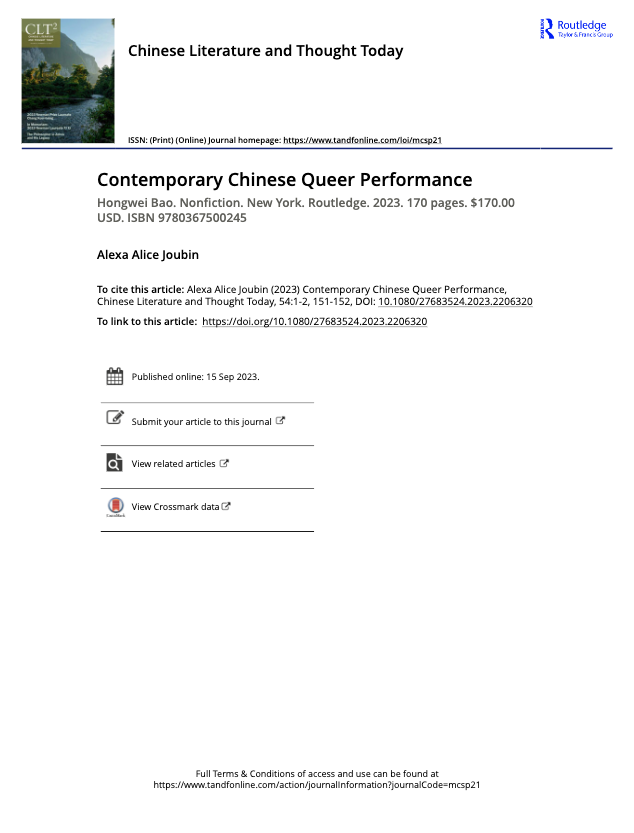Review of Contemporary Chinese Queer Performance
Chinese Literature and Thought Today 54.1-2 (2023): 151-152 :::: DOI: 10.1080/27683524.2023.2206320
Queer performance as a genre is both complex and challenging to track, especially in the throes of political oppression. Why should people who do not identify as queer care about queer performance?
Trans-identified dancer Jin Xing has this to say: “As long as we live together in a society, people can always find excuses to discriminate against each other. If you are not transsexual, you may be gay or lesbian; if you are not gay or lesbian, you may still be single at a marriageable age; if you are married, you may still be poor; if you are not poor, you may be overweight; if you are not overweight, you may need a higher university degree” (76).
Clearly one does not need to embody all identities in order to oppose systemic oppression, whatever form it may take. This is one of the core messages of Contemporary Chinese Queer Performance by Hongwei Bao.
Even though Chinese queer performance may seem a localized genre, at every turn, the book reminds readers that it is thoroughly “glocal and hybrid” and is best understood in “transnational, transcultural and transmedial” contexts (9). Global avant-garde theatre and queer culture have clearly influenced Chinese queer performance.
Conversely, Chinese diasporic artists used digital queer performance to interrogate anti- Asian racism and to carve out public space for queer discourses during the pandemic. Thus, case studies in this book avoid the typical pitfall of using knowledge of non-Western queerness as footnotes to white theories.
